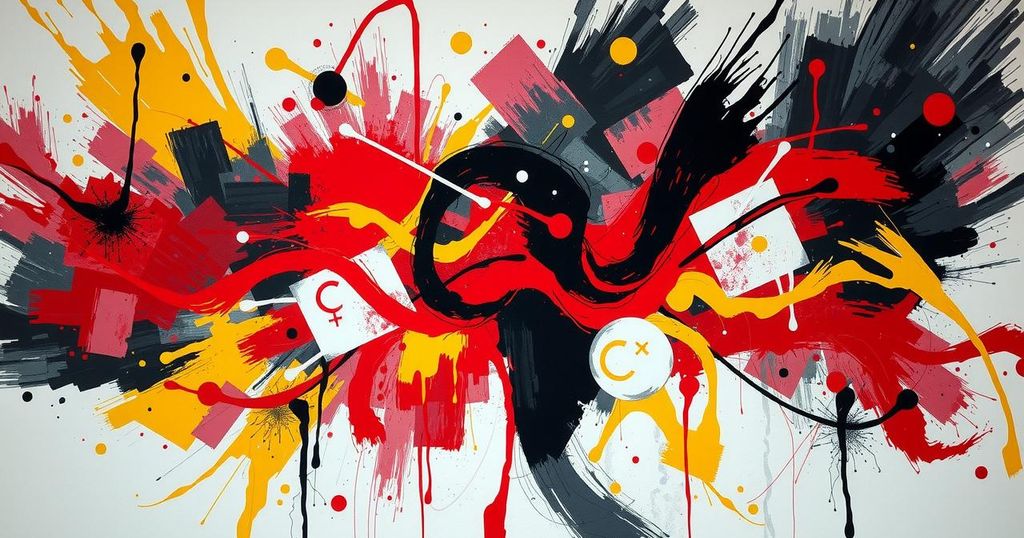Iran Vows Revenge Following US Airstrikes on Nuclear Facilities

US airstrikes on Iran’s nuclear sites have led to heightened tensions, with multiple UK and US newspapers reporting on the fallout. While the Trump administration insists it is not at war with Iran, fears of retaliation and escalating violence are palpable. Global leaders push for diplomacy as Iran vouches for revenge, raising concerns about future conflict.
In a dramatic escalation of tensions, headlines today dominated by reports of the US airstrikes on Iran’s nuclear facilities come with dire repercussions. The Financial Times points out that while the US administration claims it is not at war with Iran, but rather its nuclear program, the airstrikes on three nuclear sites—dubbed Operation Midnight Hammer—are undeniably a risky gamble. The operation, which resulted in significant damage, is seen as a bold move by President Donald Trump.
The Metro newspaper captures the immediate fallout with the headline “Hammered” prominently displayed. It features a picture of Trump in the Situation Room during the strikes, drawing attention to satellite images that reveal fresh craters at the Fordo nuclear site, where bunker-buster bombs were deployed. Iran’s foreign minister swiftly condemned the attacks, warning of “everlasting consequences” for the US.
Meanwhile, The Sun opted for a provocative headline, “Stick it up your bunker,” echoing a historic 1982 splash during the Falklands War. The paper describes how the nuclear sites were “blitzed” and emphasizes the international calls for de-escalation from global leaders following these hostilities.
The Guardian focuses on Iran’s vow to retaliate, characterizing the US intervention as one of the most significant in decades. It parallels the conflict with Israel, suggesting that the US might find itself in a protracted conflict that Trump had previously aimed to avoid. Other sources, like the Daily Telegraph, underline this irony, noting Trump’s campaign promises to steer clear of foreign conflicts.
Secretary of State Marco Rubio was quoted warning that any revenge from Iran could be “the worst mistake [Iran had] ever made,” showing the US’s concern over potential Iranian responses. On a lighter note, the Daily Telegraph also populated its pages with President Macron’s ambitions for French house music heritage recognition at UNESCO.
The Times highlighted the strategic significance of the Fordo strikes, reporting Iran’s intention to disrupt global oil supplies in retaliation through potential actions against the Strait of Hormuz, a critical maritime route. This piece of news is crucial given the global reliance on this shipping lane for oil exports.
Switching gears, the Daily Express’s attention narrowed to local implications, noting UK Prime Minister Boris Johnson’s warning of potential escalation and an elevated terror threat from Iranian activity in Britain after the strikes. Similarly, the Daily Mail raised alarms over anticipated terror repercussions in the UK and its allies, citing Business Secretary Jonathan Reynolds’ concerns.
The Daily Mirror prominently featured Trump in his MAGA cap, calling for a stop to aggression in its headline, noting the Prime Minister’s call for calm surrounding the attacks. Meanwhile, the i Paper shared images of a Pentagon briefing about the operation, underscoring fears that the Middle East is nearing a tipping point.
On a lighter note, the Daily Star’s front page shifted focus, relegating the airstrikes to a corner while featuring news on a family member of the Gallagher brothers who attributes herself to their reunion, illustrating the variance in media representation amidst these significant world events.
With the US engaged in military strikes against Iran’s nuclear capabilities, global diplomatic relations are significantly strained. Various headlines encapsulate the reaction from both sides, with Trump facing criticism while Iran vows severe retaliation. The potential for increased conflict looms large, highlighting urgent calls for diplomacy. As attention turns to possible repercussions, the implications for regional stability, particularly in the UK and elsewhere, remain a pressing concern.
Original Source: www.bbc.com







